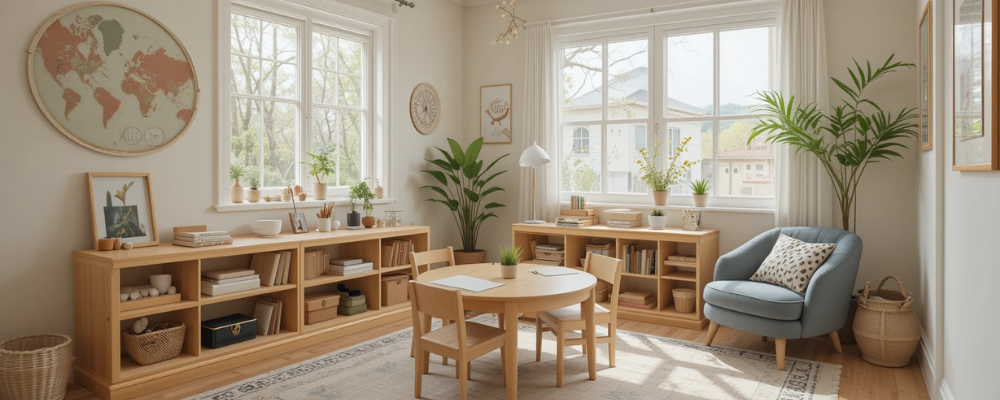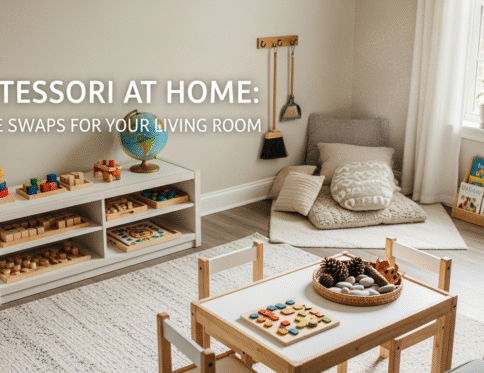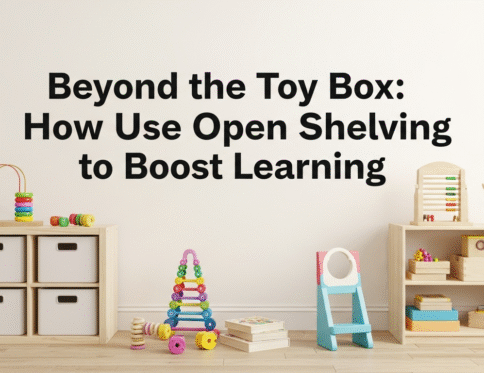Creating a Montessori-inspired learning corner at home is a wonderful way to support your child’s natural curiosity and love for learning. The Montessori method emphasizes independence, hands-on exploration, and a child-centered approach to education. By setting up a dedicated learning space at home, you can encourage your child to explore, discover, and grow in a safe and nurturing environment. In this blog post, we’ll walk you through the steps to create a Montessori-inspired learning corner that’s both functional and inspiring.
What is Montessori Learning?
The Montessori method, developed by Dr. Maria Montessori, is an educational approach that focuses on fostering independence, self-directed learning, and respect for a child’s natural development. Montessori environments are carefully designed to encourage exploration and hands-on learning, with materials and activities tailored to a child’s age and abilities.
Benefits of a Montessori-Inspired Learning Corner
- Promotes Independence: A well-organized learning space allows children to choose activities and work at their own pace, fostering independence and confidence.
- Encourages Focus: A clutter-free, thoughtfully arranged environment helps children concentrate on their tasks without distractions.
- Supports Developmental Needs: Montessori materials and activities are designed to meet the developmental needs of children, promoting cognitive, physical, and emotional growth.
- Fosters a Love for Learning: By allowing children to follow their interests, Montessori-inspired spaces nurture a lifelong love for learning.
Step-by-Step Guide to Setting Up a Montessori-Inspired Learning Corner
1. Choose the Right Location
Select a quiet, well-lit area in your home where your child can focus without interruptions. A corner of the living room, playroom, or bedroom can work well. Ensure the space is easily accessible to your child and free from distractions like TV or loud noises.
2. Keep It Simple and Organized
Montessori spaces are known for their simplicity and order. Use low shelves or baskets to store materials and keep the area clutter-free. Organize items by category (e.g., books, puzzles, art supplies) and rotate them regularly to maintain your child’s interest.
3. Use Child-Sized Furniture
Invest in child-sized furniture, such as a small table and chairs, to create a comfortable and inviting space. This allows your child to work independently and feel a sense of ownership over their learning area.
4. Incorporate Montessori Materials
Montessori materials are designed to be hands-on and self-correcting, allowing children to learn through exploration. Some essentials include:
- Practical Life Tools: Child-sized brooms, pouring sets, and dressing frames.
- Sensorial Materials: Color tablets, sound boxes, and geometric shapes.
- Math and Language Tools: Number rods, sandpaper letters, and counting beads.
5. Add Natural Elements
Incorporate natural materials like wood, cotton, and wicker to create a warm and inviting atmosphere. Avoid plastic and opt for eco-friendly, non-toxic materials whenever possible.
6. Create a Reading Nook
Include a cozy reading area with a small bookshelf and a comfortable chair or floor cushions. Stock it with age-appropriate books that align with your child’s interests and reading level.
7. Encourage Independence
Arrange materials so that your child can easily access and put them away without assistance. Label shelves and containers with pictures or words to help your child stay organized.
8. Rotate Activities Regularly
To keep your child engaged, rotate materials and activities every few weeks. This prevents boredom and allows your child to explore new concepts and skills.
9. Personalize the Space
Involve your child in setting up the learning corner. Let them choose decorations, artwork, or plants to make the space feel uniquely theirs.
10. Follow Your Child’s Interests
Pay attention to your child’s interests and incorporate activities that align with their passions. Whether it’s art, science, or nature, tailoring the space to their preferences will keep them motivated and engaged.
Tips for Maintaining a Montessori-Inspired Learning Corner
- Keep It Clean: Encourage your child to tidy up after each activity to maintain order and responsibility.
- Observe and Adapt: Watch how your child interacts with the space and make adjustments as needed to better suit their needs.
- Be Patient: Allow your child to explore and learn at their own pace without rushing or interrupting.
Conclusion
A Montessori-inspired learning corner is more than just a space—it’s an environment that nurtures your child’s natural curiosity and love for learning. By following these steps, you can create a functional, engaging, and inspiring area that supports your child’s development and independence. Remember, the key to a successful Montessori space is simplicity, organization, and a focus on your child’s unique needs and interests.
Disclaimer:
The information provided in this article is for informational purposes only and should not be considered a substitute for professional advice. Always consult with an educator or child development expert before making decisions related to your child’s learning environment.






